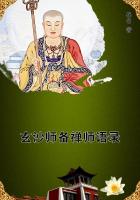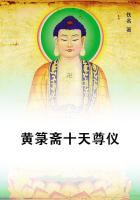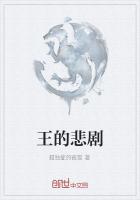Noble missionaries as Ansgar, Rembert, and Poppo, had worked for 150years and more among the heathens of Denmark. But the patriotism of the Norseman always recoiled, even though in secret, from the fact that they were German monks, backed by the authority of the German emperor; and many a man, like Svend Fork-beard, father of the great Canute, though he had the Kaiser himself for godfather, turned heathen once more the moment he was free, because his baptism was the badge of foreign conquest, and neither pope nor kaiser should lord it over him, body or soul. St. Olaf, indeed, forced Christianity on the Norse at the sword's point, often by horrid cruelties, and perished in the attempt. But who forced it on the Norsemen of Scotland, England, Ireland, Neustria, Russia, and all the Eastern Baltic? It was absorbed and in most cases, I believe, gradually and willingly, as a gospel and good news to hearts worn out with the storm of their own passions. And whence came their Christianity? Much of it, as in the case of the Danes, and still more of the French Normans, came direct from Rome, the city which, let them defy its influence as they would, was still the fount of all theology, as well as of all civilisation. But I must believe that much of it came from that mysterious ancient Western Church, the Church of St. Patric, St. Bridget, St. Columba, which had covered with rude cells and chapels the rocky islets of the North Atlantic, even to Iceland itself. Even to Iceland; for when that island was first discovered, about A.D. 840, the Norsemen found in an isle, on the east and west and elsewhere, Irish books and bells and wooden crosses, and named that island Papey, the isle of the popes--some little colony of monks, who lived by fishing, and who are said to have left the land when the Norsemen settled in it. Let us believe, for it is consonant with reason and experience, that the sight of those poor monks, plundered and massacred again and again by the "mailed swarms of Lochlin," yet never exterminated, but springing up again in the same place, ready for fresh massacre, a sacred plant which God had planted, and which no rage of man could trample out--let us believe, I say, that that sight taught at last to the buccaneers of the old world that there was a purer manliness, a loftier heroism, than the ferocious self-assertion of the Berserker, even the heroism of humility, gentleness, self-restraint, self-sacrifice; that there was a strength which was made perfect in weakness; a glory, not of the sword but of the cross. We will believe that that was the lesson which the Norsemen learnt, after many a wild and blood-stained voyage, from the monks of Iona or of Derry, which caused the building of such churches as that which Sightrys, king of Dublin, raised about the year 1030, not in the Norse but in the Irish quarter of Dublin: a sacred token of amity between the new settlers and the natives on the ground of a common faith. Let us believe, too, that the influence of woman was not wanting in the good work--that the story of St. Margaret and Malcolm Canmore was repeated, though inversely, in the case of many a heathen Scandinavian jarl, who, marrying the princely daughter of some Scottish chieftain, found in her creed at last something more precious than herself; while his brother or his cousin became, at Dublin or Wexford or Waterford, the husband of some saffron-robed Irish princess, "fair as an elf," as the old saying was; some "maiden of the three transcendent hues," of whom the old book of Linane says:
Red as the blood which flowed from stricken deer, White as the snow on which that blood ran down, Black as the raven who drank up that blood;- and possibly, as in the case of Brian Boru's mother, had given his fair-haired sister in marriage to some Irish prince, and could not resist the spell of their new creed, and the spell too, it may be, of some sister of theirs who had long given up all thought of earthly marriage to tend the undying fire of St. Bridget among the consecrated virgins of Kildare.
I am not drawing from mere imagination. That such things must have happened, and happened again and again, is certain to anyone who knows, even superficially, the documents of that time. And I doubt not that, in manners as well as in religion, the Norse were humanised and civilised by their contact with the Celts, both in Scotland and in Ireland. Both peoples had valour, intellect, imagination: but the Celt had that which the burly angular Norse character, however deep and stately, and however humorous, wanted;namely, music of nature, tenderness, grace, rapidity, playfulness;just the qualities, combining with the Scandinavian (and in Scotland with the Angle) elements of character which have produced, in Ireland and in Scotland, two schools of lyric poetry second to none in the world.
And so they were converted to what was then a dark and awful creed;a creed of ascetic self-torture and purgatorial fires for those who escape the still more dreadful, because endless, doom of the rest of the human race. But, because it was a sad creed, it suited better, men who had, when conscience re-awakened in them, but too good reason to be sad; and the minsters and cloisters which sprang up over the whole of Northern Europe, and even beyond it, along the dreary western shores of Greenland itself, are the symbols of a splendid repentance for their own sins and for the sins of their forefathers.
Gudruna herself, of whom I spoke just now, one of those old Norse heroines who helped to discover America, though a historic personage, is a symbolic one likewise, and the pattern of a whole class. She too, after many journeys to Iceland, Greenland, and Winland, goes on a pilgrimage to Rome, to get, I presume, absolution from the Pope himself for all the sins of her strange, rich, stormy, wayward life.















